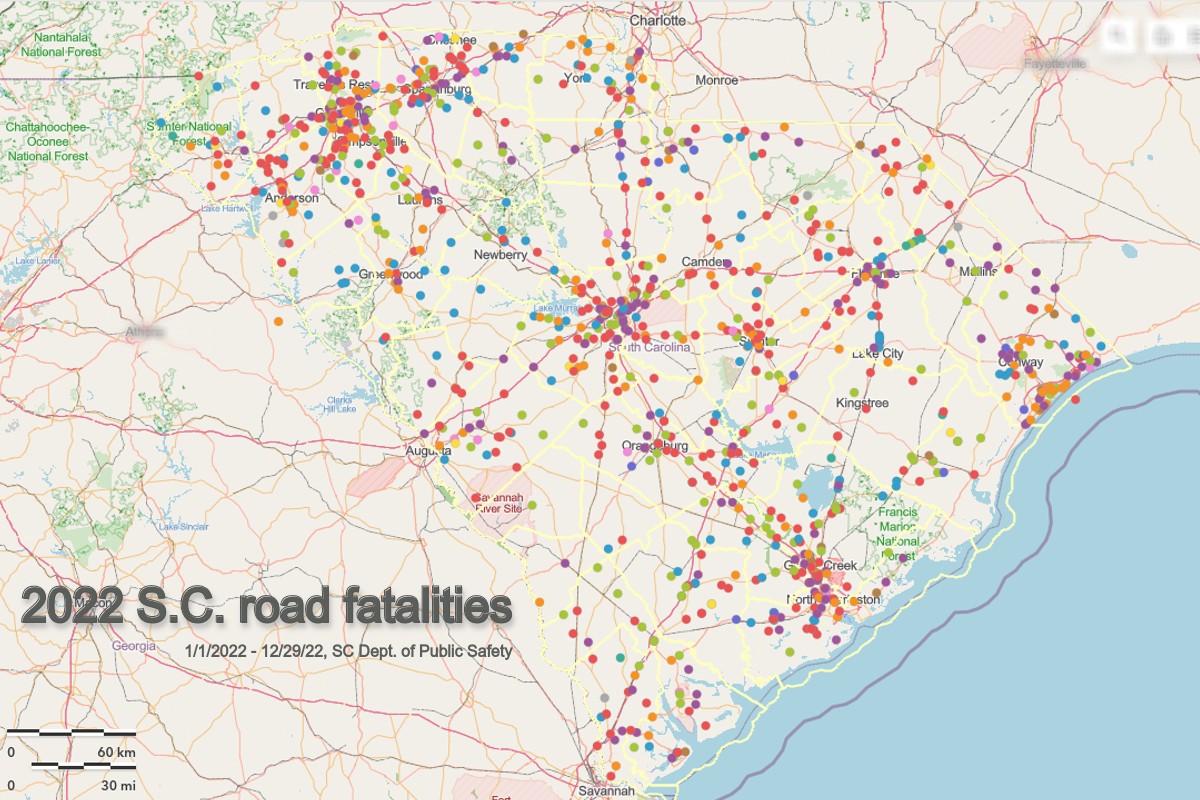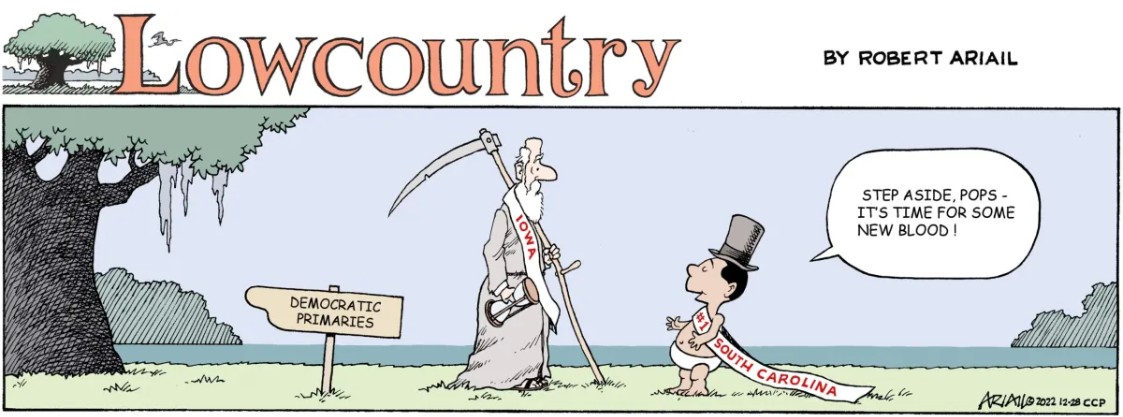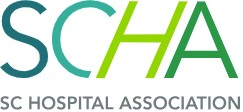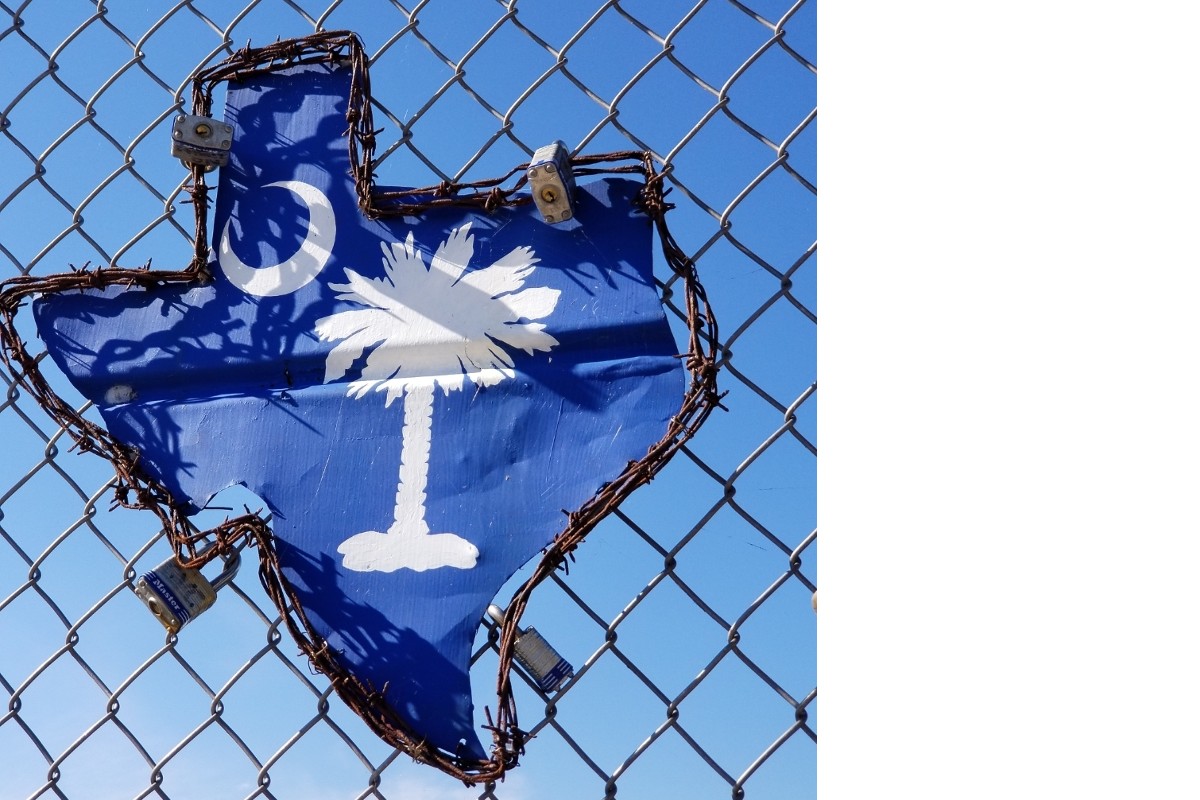STATEHOUSE REPORT | ISSUE 21.52 | DEC. 30, 2022
NEWS: Highway deaths drop 12% so far in 2022
NEWS BRIEFS: Bills call for end to sales tax on tampons
LOWCOUNTRY, Ariail: New blood
COMMENTARY, Brack: Think broader, act bigger to achieve Palmetto Priorities
SPOTLIGHT: S.C. Hospital Association
FEEDBACK: Send us your thoughts
MYSTERY PHOTO: Locked up
State highway deaths drop 12% so far in 2022

By Andy Brack | Almost 150 fewer people died on South Carolina highways in 2022 compared to the year before as fatalities dropped 12% as of Dec. 27, according to state highway data.
For the year through Dec. 27, 1,035 people died in highway accidents, according to the state Department of Public Safety (SCDPS). During the previous year, 1,183 people died on the state’s roads in accidents involving cars, pedestrians, bikes or motorcycles.
Why the big drop? At this point, it’s unclear, although this year’s fatality numbers are more reflective of totals from past years when 1,098 died in 2021, 959 in 2020 and 924 in 2019.
While the final number of road-related deaths likely will grow slightly in the last few days of the year and because some data won’t be available until next year, part of the drop could be because people didn’t drive as much due to higher gas prices.
“Less miles on the road can also be attributed to a number of variables, including gas prices, personal choice, et cetera,” said Kyle Magahee, SCDPS media relations coordinator.
Ginny T. Jones, director of strategic communications at the S.C. Department of Transportation (SCDOT), highlighted the agency’s emphasis on boosting safety that’s part of its 10-year plan.
“SCDOT has increased funding to our Highway Safety Program by almost 35% from $98 million per year in 2018 to $132 million in 2023,” she told Statehouse Report. “Our safety program aims to make improvements based on a systematic, data-driven approach.
“Based on analysis performed by our traffic engineers, we put in proven safety measures on a case-by-case basis. These safety improvements include a variety of countermeasures including alternative intersection designs, traffic signals or signs, pavement markings, removing roadside obstacles and more.”
Magahee said the department also had more local law enforcement agencies join it in efforts to reduce speeding and distracted driving in enforcement campaigns for traffic safety, such as Sober or Slammer, Operation Southern Slow Down and Buckle Up, South Carolina.
“It’s important to note that we have seen a 52% increase (88 agencies in 2021 to 134 agencies in 2022) in participation from law enforcement agencies statewide in our S.C. Law Enforcement Networks,” Magahee said. “The benefit of more agencies participating means an increased and consolidated effort on traffic enforcement across the state.”
He added while the department hasn’t spent more on paid media, it has reallocated some dollars to reach riskier 16- to 34-year-old drivers through targeted social media campaigns.
“We do want to mention our Area Coordinated Enforcement (ACE) Team,” he added. “The agency uses collision data to strategically place our enforcement teams in high crash corridors and focus on enforcing traffic violations with a special emphasis on DUI, speed, aggressive and distracted driving, which are common violations that lead to collisions and fatalities.”
Here are some additional fatality numbers from the beginning of the year through Dec. 18, compared to all of 2021, according to the agency’s website:
- Fatal crashes: 946 in 2022; 1,098 in 2021.
- Pedestrians killed: 163 in 2022; 190 in 2021.
- Bicyclists killed: 21 in 2022; 23 in 2021.
- Motorcyclists killed: 137 in 2022; 160 in 2021.
Bills call for end to sales tax on tampons
Staff reports | Three bills have been pre-filed in the S.C. General Assembly to end the so-called “tampon tax” by providing an exemption to the state’s 6% sales tax on feminine hygiene products.
![]() While Democrats have pushed the effort for years, state Sen. Katrina Shealy, R-Lexington, and four co-sponsors filed a bill (S. 149) for the exemption earlier this month. In the House, veteran Democratic Rep. Gilda Cobb Hunter of Orangeburg filed a bill for the exemption (H. 3563) as did Easley Republican Rep. Neal Collins with H. 3109.
While Democrats have pushed the effort for years, state Sen. Katrina Shealy, R-Lexington, and four co-sponsors filed a bill (S. 149) for the exemption earlier this month. In the House, veteran Democratic Rep. Gilda Cobb Hunter of Orangeburg filed a bill for the exemption (H. 3563) as did Easley Republican Rep. Neal Collins with H. 3109.
According to The Post and Courier, the exemption, if passed, would reduce state revenues by about $5.8 million annually, while reducing local taxes by $1.4 million, according to a 2021 analysis.
In other news this week:
S.C. sees double-digit spike in those requesting homelessness aid. The South Carolina Interagency Council of Homelessness released its annual State of Homeless report and revealed that 13,399 people received homeless services, an 18% jump from the year prior.
State DSS to end SNAP emergency allotments at end of month. The S.C. Department of Social Services announced that it will make changes to South Carolina’s access to the federally-approved Supplemental Nutrition Assistance Program (SNAP). On Feb. 1, SNAP recipients will go back to receiving their regular monthly benefits.
Schedule announced for Inauguration Day in Columbia. Gov. Henry McMaster is set to take the oath of office next month for the start of the term which will make him the longest-serving governor in state history. It will be the 98th Inauguration ceremony in South Carolina.
Leatherman terminal losing cargo service. One of the two scheduled shipping services plans to move its operations to another part of the Port of Charleston at the end of January as the threat of legal action has pushed it away from the new $1 billion Leatherman Terminal in North Charleston. The decision to split from Leatherman Terminal comes after a national labor board ruling that all work at the Leatherman Terminal must be done by members of the International Longshoremen’s Association dockworkers union. The port has said it will appeal the ruling.
Network outage caused temporary halt on SCDMV transactions. South Carolina DMV branches experienced network outages Wednesday morning. Online transactions and the Blythewood branch, however, were still operational. Systems were restored Wednesday afternoon after a hardware replacement.
S.C. agencies, universities partner to combat addiction. South Carolina’s public health agencies are partnering with three state university research teams to discover the best way to curb addiction of drugs and alcohol. The goal is to find alternative and better ways to improve on the already existing programs across the state to decrease the mortality rate.
Former S.C. Commerce secretary dies at 64. Joe Taylor, former S.C. Commerce Secretary and Columbia councilmember, has passed away at the age of 64. Taylor was best known for helping bring Boeing to North Charleston, marking one of the biggest industrial recruiting coups.
DHEC reports 9,574 Covid cases, 10 deaths. The new data collected from Dec. 18-24 shows an increase of over 1,000 cases since the previous week. Public health officials are urging more Americans to get the latest Covid-19 booster shot. Some 35% of people over the age of 65 have gotten the shot, despite having high death rates among the age group.
Average price of gas drops 5 cents per gallon. For the seventh straight week, gas prices dropped in the Palmetto State with the average price per gallon on Monday at $2.72. That’s 38 cents less per gallon than a month ago.
New blood

Cartoonist Robert Ariail often interprets things a little differently, but always has an interesting take on what’s going on in South Carolina. Love the cartoon? Hate it? What do you think: feedback@statehousereport.com.
Think broader, act bigger to achieve Palmetto Priorities

By Andy Brack | Part of the promise of living in a first-world government is for it to help to make life a little better for everyone.
 So when we read that state leaders are focusing in 2023 on improving economic development after attracting $10 billion in investment in 2022, we say “hurrah.” But we also encourage them to use the power of state government more broadly.
So when we read that state leaders are focusing in 2023 on improving economic development after attracting $10 billion in investment in 2022, we say “hurrah.” But we also encourage them to use the power of state government more broadly.
Instead of incentives for big businesses, adopt more incentives for teachers, small businesses and first responders. Instead of investments in workforce training, show a deeper commitment to public education, access to quality health care and strategies to end poverty for all.
Bottom line: Think broader and act bigger. So for the 15th year, we offer our annual list of Palmetto Priorities. These updated policy objectives encourage policymakers to meet or exceed 10 definable goals that have been on the table too long. As we first wrote in 2009:
“If you don’t have a policy map for where you want to be headed, you will flounder in proposal after proposal. Therefore, today we highlight broad continuing objectives for state legislators to consider and use as a bipartisan guide to creating a better South Carolina.”
This year’s updated Palmetto Priorities offer a bipartisan menu of ways for lawmakers to work together to lift up South Carolina:
 GUN REFORM. Close the “Charleston loophole” in 2023 to extend the waiting period for purchasing a gun to at least five days to allow federal examiners more time for background checks. This has been on the state’s to-do list since the 2015 Emanuel AME Church massacre. It’s time to get this job done as well as consider other reasonable reforms to reduce gun violence in South Carolina.
GUN REFORM. Close the “Charleston loophole” in 2023 to extend the waiting period for purchasing a gun to at least five days to allow federal examiners more time for background checks. This has been on the state’s to-do list since the 2015 Emanuel AME Church massacre. It’s time to get this job done as well as consider other reasonable reforms to reduce gun violence in South Carolina.
POVERTY. Develop a broad-based anti-poverty agenda by 2025 that includes the jobs, education and health care components listed below to help lift the almost one in five South Carolinians in poverty into better conditions.
JOBS. Approve a Cabinet-level post by 2025 to add and retain 10,000 small business jobs per year. Politicians talk about helping small businesses. This would force them to.
EDUCATION. Cut the state’s public school dropout rate in half by 2030. If you believe in public education and workforce training, you need to invest more now to learn how to better teach our children early so they’re ready to work.
HEALTH CARE. Ensure affordable and accessible health care that optimizes preventive care for every South Carolinian by 2024. Expand Medicaid. More people need to be on health insurance, not fewer.
ENVIRONMENT. Adopt a real state energy policy that requires energy producers to generate 20 percent of their energy from renewable sources by 2025.
TAXES. Overhaul and stabilize the state’s antiquated tax structure by 2025 through reforms that broaden the tax base and lower rates. This should include reimplementation of reasonable property taxes and removal of hundreds of millions of dollars of sales tax exemptions that go to special interests.
CORRECTIONS. Cut the prison population by 25 percent by 2025 through creative alternative sentencing programs for non-violent offenders.
ROADS. Develop and implement a plan that creatively taps several sources to generate more millions of dollars every year for investment in the state’s crumbling system of roads and bridges, and start pigeon-holing money for significant investments in public transit.
POLITICS. One party rule doesn’t foster innovation. So let’s have a vigorous two- or multi-party political system of governance that abandons partisan gerrymandering of election districts. Appoint an independent state redistricting commission as implemented in several other states to take much of the politics out of electioneering.
Over the last 15 years, we’ve knocked two priorities off of the first list of priorities – increasing the cigarette tax to reduce smoking levels and boosting voter registration. Now let’s accomplish this revamped list of policy priorities to move South Carolina forward.
Andy Brack is editor and publisher of Statehouse Report and the Charleston City Paper. Have a comment? Send to: feedback@statehousereport.com.
S.C. Hospital Association
 The public spiritedness of our underwriters allows us to bring Statehouse Report to you at no cost. This week’s spotlighted underwriter is the South Carolina Hospital Association, the Palmetto State’s foremost advocate on healthcare issues affecting South Carolinians. The mission of SCHA is to support its members in addressing the healthcare needs of South Carolina through advocacy, education, networking and regulatory assistance.
The public spiritedness of our underwriters allows us to bring Statehouse Report to you at no cost. This week’s spotlighted underwriter is the South Carolina Hospital Association, the Palmetto State’s foremost advocate on healthcare issues affecting South Carolinians. The mission of SCHA is to support its members in addressing the healthcare needs of South Carolina through advocacy, education, networking and regulatory assistance.
Founded in 1921, the South Carolina Hospital Association is the leadership organization and principal advocate for the state’s hospitals and health care systems. Based in Columbia, SCHA works with its members to improve access, quality and cost-effectiveness of health care for all South Carolinians. The state’s hospitals and health care systems employ more than 70,000 persons statewide. SCHA’s credo: We are stronger together than apart.
- To learn more about SCHA and its mission, go to: http://www.scha.org.
Send us your thoughts about what’s happening in S.C.
Have a comment? Send your letters or comments to: feedback@statehousereport.com. Make sure to provide your contact details (name, hometown and phone number for verification. Letters are limited to 150 words.
Locked up

This photo sent in by a reader might be too hard to locate, but there are clues in here. We’ll offer a hint: It’s located in the middle of the state. What is it and where? Send us your guess – as well as your name and hometown – to feedback@statehousereport.com.
 Hats off to several eagle-eyed readers who correctly identified “Groovy building” as the old Star of America Motel on Rivers Avenue in North Charleston. It’s being revamped according to the developer (and photographer) Ed Sutton of West Ashley, and will reopen next month.
Hats off to several eagle-eyed readers who correctly identified “Groovy building” as the old Star of America Motel on Rivers Avenue in North Charleston. It’s being revamped according to the developer (and photographer) Ed Sutton of West Ashley, and will reopen next month.
More people guessed correctly than we thought, including: George Graf of Palmyra, Va.; Jay Altman and Elizabeth Jones, both of Columbia; Curtis Joyner of Charleston; Pat Keadle of Wagener; and Elliott Brack of Norcross, Ga.
Keadle told us that there were bunches of these “breeze block” buildings back in the 1960s in South Carolina but many of them have gone away. Jones outlined that the hotel was erected in 1961 and was “the first in Charleston and possibly the country of prefabricated motels that also came fully furnished. The motel was a symbol of the area’s postwar commercial development.”
Sutton said the refurbished hotel is expected to have a soft open in January, followed by a grand opening two months later. It will have 51 rooms, a bar, restaurant and pool club.
>> Send us a mystery picture. If you have a photo that you believe will stump readers, send it along (but make sure to tell us what it is because it may stump us too!) Send to: feedback@statehousereport.com and mark it as a photo submission. Thanks.
- ORDER NOW: Copies are in Lowcountry-area bookstores now, but if you can’t swing by, you can order a copy online today.
- Now available as an e-book!
ABOUT STATEHOUSE REPORT
Statehouse Report, founded in 2001 as a weekly legislative forecast that informs readers about what is going to happen in South Carolina politics and policy, is provided to you at no charge every Friday.
- Editor and publisher: Andy Brack, 843.670.3996
Donate today
We’re proud to offer Statehouse Report for free. For more than a dozen years, we’ve been the go-to place for insightful independent policy and political news and views in the Palmetto State. And we love it as much as you do.
But now, we can use your help. If you’ve been thinking of contributing to Statehouse Report over the years, now would be a great time to contribute as we deal with the crisis. In advance, thank you.
Buy the book
Now you can get a copy of editor and publisher Andy Brack’s We Can Do Better, South Carolina! ($14.99) as a paperback or as a Kindle book ($7.99). . The book of essays offers incisive commentaries by editor and publisher Andy Brack on the American South, the common good, vexing problems for the Palmetto State and interesting South Carolina leaders.
More
- Mailing address: Send inquiries by mail to: P.O. Box 21942, Charleston, SC 29413
- Subscriptions are free: Click to subscribe.
- We hope you’ll keep receiving the great news and information from Statehouse Report, but if you need to unsubscribe, go to the bottom of the weekly email issue and follow the instructions.
- Read our sister publication: Charleston City Paper (every Wednesday in print; Every day online)
- © 2022, Statehouse Report, a publication of City Paper Publishing, LLC. All rights reserved.


